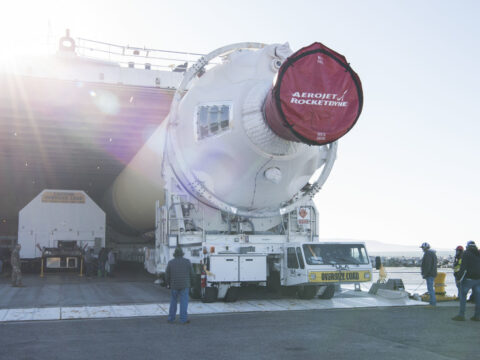
The Department of the Air Force recently released updated guidance concerning the use of telework and remote work for all civilian employees and service members worldwide, to include active duty, Guard and Reserve Airmen and active duty Guardians.
The DAF guidance memorandum, DoDI1035.01_DAFI 36-816 Telework Program, provides necessary clarification and expands the Department’s use of telework and remote work based on current lessons learned, pending a comprehensive review of the Department of the Air Force telework program.
“The Department of the Air Force is using lessons learned about teleworking and remote work during the pandemic as an opportunity to grow,” said John Fedrigo, acting Assistant Secretary of the Air Force for Manpower and Reserve Affairs. “The pandemic has shown we can be successful using telework in many areas of our mission, and it helps to bridge our current force structure to the force we need for the future.”
Position eligibility is determined by the squadron commander, or equivalent, with input from supervisors. Commanders, or equivalent, will consider the nature of the work performed, and assess whether permitting telework or remote work would diminish the ability to perform successfully or negatively impact the mission. Even if a specific position is determined ineligible for telework or remote work, there may be circumstances when the Airman/Guardian in this position may be considered for telework on an emergency or situational basis.
“We believe providing our uniformed and civilian Guardians flexibility in their ability to serve will lead to greater job satisfaction and retention,” said Patricia Mulcahy, chief human capital officer, U.S. Space Force. “This new guidance from the Department of the Air Force provides options for leaders to adopt more telework and remote work solutions to human capital management challenges. It also provides members with options to adapt to changes in their personal and professional circumstances by opening the aperture on where they can perform their work.”
The duties and tasks of staff positions are generally more suited for full-time telework and remote work. Remote work differs from telework in that it is a permanent arrangement in which employees perform official duties at an approved alternative location, but not necessarily in the vicinity of the unit to which they are assigned.
“Remote work is a valuable benefit to attract talent as we build the Space Force,” Mulcahy said. “Removing a physical location requirement from positions opens up the talent competition, which leads to greater quality competition among applicants.”
For civilians, this location may be in or outside of the local commuting area of the regular worksite, but they aren’t required to report to the regular worksite on any frequent, regular or recurring basis. For service members approved to work remotely, they will perform work in an operating location that is geographically separated from their assigned unit. Arrangements would be made to gain support from the closest installation.
The updated guidance also outlines conditions for designation of an official worksite, equipment and office supplies, emergency situations, work schedules and compensation, time and attendance, telework training, performance management, and telework and remote work denial and termination.
For more information, see the DAF Telework and Remote Work Guide or reference the DAF guidance memorandum.
Source: US Space Force
This webpage is made available by SEO Press Release, press release distribution service








